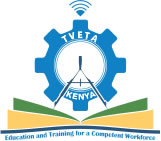Entry Requirements for Electrical Engineering Craft 2
A PASS in Craft Module 1
Duration: 12 Months
Delivery Method: Both Online & Physical
Fee Structure for Electrical Engineering Craft 2
Course Fee Breakdown
Trimester 1
| Trimester 2
| Trimester 3
|
Exam Fee Breakdown
| Trimester 1 | Trimester 2 | Trimester 3 | ||||||||||||
|---|---|---|---|---|---|---|---|---|---|---|---|---|---|---|
|
|
|
Other Mandatory Course Requirements for Electrical Engineering Craft 2
The following are mandatory requirements needed upon admission:
- Photocopy of KCSE result slip or certificate or Equivalent
- Photocopy of National ID Card
- Photocopy of Birth certificate
- 6 A4 sized books
- A minimum 3 ballpoint pens
- A smart phone is greatly necessary
Course Units/Overview for Electrical Engineering Craft 2
Below is a breakdown of all the units taught under this course
|
|
| ||||||||||||||||||||||||||||||||||||||||||||||||||||||||||||||
Course Description for Electrical Engineering Craft 2
Craft Certificate Module 2 in Electrical and Electronics Engineering (Power Option) is an advanced one-year course offered at Uwezo College and is designed for students who have successfully completed Craft Certificate Module 1 in Electrical and Electronics Engineering (Power Option). This program, examinable by the Kenya National Examinations Council (KNEC), provides students with advanced knowledge and practical skills in electrical and electronics engineering, with a particular focus on power systems. To enroll in Craft Certificate Module 2 in Electrical and Electronics Engineering (Power Option), students must have passed Craft Certificate Module 1 in Electrical and Electronics Engineering (Power Option). This prerequisite ensures that students have the foundational knowledge required to excel in this advanced craft certificate program.
Course Structure:
The curriculum encompasses a wide range of key areas, offering students advanced knowledge and practical skills in electrical and electronics engineering, with a specific focus on power systems:
-
Introduction to Communication Skills: Development of advanced communication skills vital for professional interaction in the field.
-
Workshop Organization and Management: Understanding the organization and management of electrical and electronics engineering workshops for efficient and safe operation.
-
Trade Practice: Continuation of hands-on practical training, allowing students to apply their knowledge and skills in real-world electrical and electronics engineering scenarios.
-
Mathematics: Advanced mathematical concepts and techniques relevant to electrical and electronics engineering applications.
-
Microelectronics: An in-depth exploration of microelectronic components, circuits, and systems, focusing on power-related applications.
-
Electrical Principles: Advanced knowledge of electrical principles, concepts, and safety procedures applicable to power systems.
-
Trade Project: Completion of a trade project, demonstrating the application of advanced electrical and electronics engineering skills.
-
Electrical Maintenance and Fault Diagnosis: Proficiency in electrical maintenance practices and fault diagnosis for power systems.
-
Industrial Machines and Control: Understanding industrial machines and control systems, emphasizing their applications in electrical and electronics engineering.
-
Electrical Design, Estimating, and Tendering: Skills in electrical design, estimation, and tendering, crucial for the planning and execution of electrical projects.
Skills and Competencies:
Upon completing Craft Certificate Module 2 in Electrical and Electronics Engineering (Power Option), students will acquire advanced skills and competencies vital for success in the field:
-
Enhanced communication skills for effective professional interaction within the electrical and electronics engineering domain.
-
Skills to manage and organize electrical and electronics engineering workshops efficiently and safely.
-
Advanced practical skills, enabling students to excel in real-world electrical and electronics engineering scenarios.
-
Advanced mathematical knowledge and problem-solving skills applicable to electrical and electronics engineering.
-
In-depth understanding of microelectronic components, circuits, and systems, particularly within power systems.
-
Mastery of advanced electrical principles, concepts, and safety procedures relevant to power systems.
-
Ability to complete complex trade projects, showcasing advanced electrical and electronics engineering skills.
-
Proficiency in maintaining and diagnosing faults in electrical systems, with a focus on power systems.
-
Understanding industrial machines and control systems and their applications in electrical and electronics engineering.
-
Skills to plan and execute electrical projects, including design, estimation, and tendering.
Why Study at Uwezo College
Uwezo College is your ideal choice for quality education and career success. With full licensing from TVET, serving as an examination centre for KNEC and NITA, and being an approved training centre for KASNEB courses, we offer the most comprehensive and accredited education. Our track record of producing top-performing graduates who excel in the job market sets us apart. When you choose Uwezo College, you're making a commitment to your future, ensuring you receive the finest education, expert guidance, and a competitive edge in today's competitive job market. Join us and secure your path to success.
The following are reasons why you should make Uwezo College as the choice for your studies:
- We are a TVET Technical and Business College fully registered with the Ministry of Education
- We provide a serene learning environment and fully equiped workshops
- We have qualified, competent and committed lecturers
- Guaranteed attachment
- We provide bursaries to the extremely needy students
- We have free high speed Internet connectivity to our students
- Affordable fees
- We have clean and spacious hostels
- We provide job linkages
Career Opportunities:
Upon completing Craft Certificate Module 2 in Electrical and Electronics Engineering (Power Option), graduates can pursue advanced positions in electrical and electronics engineering, including Electrical Engineers, Power Systems Technicians, and Industrial Control Specialists. This advanced craft certificate program equips students with the skills and knowledge necessary to excel in more challenging roles in the electrical and electronics engineering field, particularly within power systems.
Course Instructor(s) for Electrical Engineering Craft 2
 CATHERINE MWENDE MUMBE
CATHERINE MWENDE MUMBE
 PETER WAWERU NGUGI
PETER WAWERU NGUGI
 MWENDE KATUMBU ROSE
MWENDE KATUMBU ROSE
 DENISE KASOHA ALUCHULA
DENISE KASOHA ALUCHULA
Examining Body for Electrical Engineering Craft 2
KNEC
FAQs for Electrical Engineering Craft 2
What are the requirements for registration/admission as a student?
- KCSE result slip or certificate or Equivalent
- National ID Card or Birth certificate
- 2 Passport size photographs
- Registration Fee
- Student ID Fee
- Maintenance Fee
- Material Fee(where applicable)
- Polo T-Shirt fee
- Insurance Fee
- Student's handbook fee
Course Reviews for Electrical Engineering Craft 2
Top Rated Reviews

KENNEDY MULINGE KYALO from Kenya
0 0
Nice course. My passion is in electrical.






